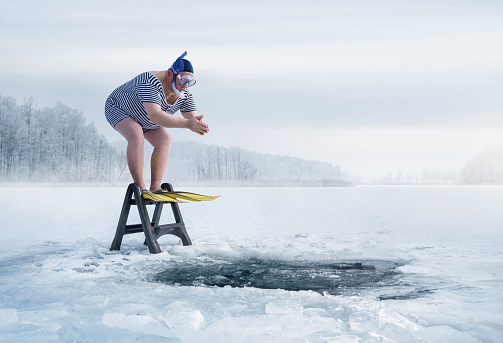General Rules of Open Water Swimming
Did you know that open water swimming has seen a 30% increase in participation over the last decade? When it comes to finding the vast expanse of open waters, there are important rules to follow to guarantee your safety and enjoyment. From understanding essential gear to practicing proper etiquette, these guidelines will not only enhance your experience but also contribute to a sense of community among fellow swimmers. Plunge into the world of open water swimming and discover the key principles that will elevate your aquatic adventures.
Safety Precautions for Open Water Swimming
When starting on open water swims, prioritizing safety by adhering to specific guidelines and precautions is important to guarantee a secure and enjoyable experience. Before beginning on your open water swimming journey, familiarize yourself with the emergency procedures specific to the area you will be swimming in. Understanding what to do in case of unforeseen circumstances will not only keep you safe but also give you peace of mind during your swim.
Weather conditions play a significant role in open water swimming safety. Always check the weather forecast before heading out for a swim. Sudden changes in weather patterns can pose risks to swimmers, so it is important to be aware of any potential changes in conditions. If the weather deteriorates while you are swimming, knowing what to do and where to seek shelter can make all the difference.
In addition to emergency procedures and weather conditions, swimming with a buddy or in designated swimming areas whenever possible is crucial. Having someone with you increases safety in case of emergencies and provides a more enjoyable experience through shared moments in the water. Remember, safety should always be your top priority when engaging in open water swimming adventures.
Essential Gear for Open Water Swimming
Ensuring you have the right gear is essential for a safe and successful open water swimming experience. When gearing up for your open water swim, consider the following:
- Wetsuit Benefits: A wetsuit not only provides warmth but also buoyancy, helping you float more effortlessly in the water. It can also offer some protection against jellyfish stings and other minor abrasions. When choosing a wetsuit, opt for one that fits snugly but allows for easy movement. Make sure the material is comfortable and flexible to prevent chafing during long swims.
- Goggles Fit: Properly fitting goggles are vital for clear vision and to prevent water from entering your eyes, ensuring a comfortable swim. Look for goggles with adjustable straps and nose bridges to customize the fit. Anti-fog lenses can help maintain visibility in changing water conditions. Consider tinted lenses for bright sunny days or clear lenses for overcast conditions.
- Swim Cap: A swim cap not only keeps your hair out of your face but also helps with visibility for fellow swimmers and boats. Silicone caps are durable and provide a snug fit, reducing drag as you move through the water. Choose a brightly colored cap for increased visibility in the water, especially if swimming in areas with boat traffic.
Etiquette Guidelines for Open Water Swimming
To navigate open water swimming settings effectively, understanding and adhering to proper etiquette guidelines is essential. When swimming in open water, it's important to respect the space of fellow swimmers. Always be mindful of your surroundings and avoid crowding others. If you're swimming with a 'swim buddy,' communicate effectively to make sure you stay together and look out for each other.
During races, it's vital to follow race strategies that not only benefit you but also contribute to a positive experience for all participants. Start races calmly to avoid unnecessary splashing and contact with other swimmers. Once the race is underway, maintain a steady pace and avoid sudden movements that could disrupt those around you. When passing another swimmer, do so courteously and with ample space to prevent any interference.
In open water swimming, it's customary to be supportive of your fellow swimmers. Encourage others, offer help if needed, and always swim with a cooperative spirit. Remember that everyone is out there to enjoy the water and the experience, so maintaining a friendly and considerate attitude towards others is key. By following these etiquette guidelines, you can guarantee a pleasant and harmonious open water swimming environment for yourself and those around you.
Training Tips for Open Water Swimming
Looking to enhance your open water swimming skills with effective training tips? Here are some key strategies to help you improve your performance in the open water:
- Breathing Techniques
Proper breathing is essential for open water swimming success. Practice rhythmic breathing by inhaling deeply through your mouth and exhaling fully through your nose or mouth. Incorporate bilateral breathing into your routine to balance out your stroke and improve your overall endurance. Remember to stay relaxed and avoid panicking if you accidentally inhale water – simply roll onto your back and take a few deep breaths to regain composure.
- Stroke Efficiency
Focus on your stroke technique to maximize efficiency in the water. Keep your body position horizontal and streamline to reduce drag. Engage your core muscles to maintain stability and power through each stroke. Work on your catch and pull phases to generate propulsion effectively. Video analysis can be a helpful tool to identify areas for improvement in your stroke technique.
- Interval Training
Incorporate interval training into your workouts to build endurance and speed. Swim at varying intensities, alternating between fast sprints and moderate recovery periods. This type of training will help simulate the unpredictable conditions of open water swimming and prepare you for different race scenarios. Remember to stay consistent with your training and gradually increase the intensity and duration of your sessions to see improvements in your performance.
Environmental Awareness in Open Water Swimming
Understanding the impact of environmental factors is important for open water swimmers to navigate and respect their surroundings effectively. As you venture into the open water, being aware of marine life encounters and pollution prevention measures is essential for both your safety and the well-being of the aquatic ecosystem.
Environmental Awareness Tips for Open Water Swimming
| Environmental Factor | Impact | Action |
|---|---|---|
| Marine Life Encounters | Enhances the swimming experience and biodiversity in the ecosystem | Respect their habitat, avoid touching or disturbing marine life, stay calm if you encounter them |
| Pollution Prevention | Protects the environment and your health | Use biodegradable products, dispose of waste properly, participate in beach clean-ups |
When you encounter marine life during your swim, remember that you are a visitor in their home. Admire them from a safe distance and avoid any actions that may harm them or their habitat. Additionally, do your part in pollution prevention by minimizing your environmental footprint, using eco-friendly products, and actively participating in activities that aim to keep our waters clean.
Frequently Asked Questions
What Are Some Common Challenges or Obstacles That Open Water Swimmers May Encounter During a Race or Training Session?
During open water swims, you might face navigation challenges that can steer you off course. Swimmer safety is important. Be mindful of marine life encounters. Equipment malfunctions could happen, so always check your gear before diving in.
How Can Swimmers Best Prepare for Varying Water Conditions and Temperatures in Open Water Environments?
To tackle varying water conditions and temperatures in open water, it's crucial to choose the correct wetsuit for the job. Prioritize acclimatization and safety precautions, while staying vigilant for potential sea creatures. Plunge prepared!
Are There Any Specific Nutrition or Hydration Recommendations for Open Water Swimmers Before, During, and After a Swim?
Before, during, and after an open water swim, guarantee proper nutrition and hydration. Hydrate well, consume easily digestible carbs before, and replenish electrolytes post-swim. Adapt to varying water temps gradually. Nutrition and hydration play key roles in your open water success.
What Strategies Can Swimmers Use to Stay Mentally Focused and Motivated During Longer Open Water Swims?
To maintain mental toughness during long open water swims, focus on visualization. Engage in positive self-talk and set achievable goals. Picture yourself conquering each stroke, like a determined sailor steering through rough waters towards the horizon.
How Can Swimmers Effectively Incorporate Open Water Training Into Their Overall Swim Training Regimen?
To effectively incorporate open water training into your overall regimen, focus on strength training to build endurance and breathing techniques for efficiency. Balance pool workouts with open water swims to adapt and enhance performance.






